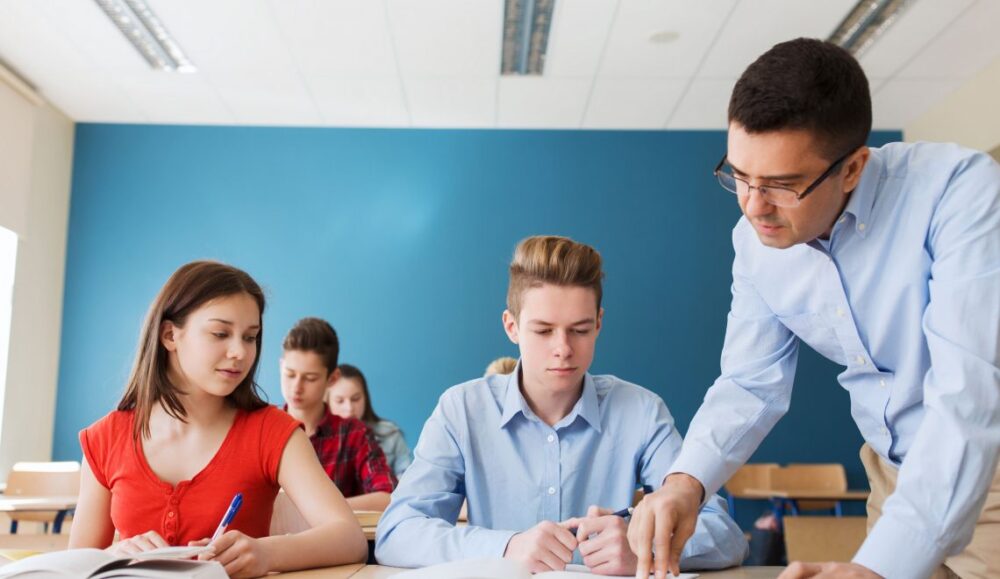Teacher Competencies: Qualities Teachers of Dyslexic Students Should Have
Wondering what teacher competencies a mentor should have to help your child with dyslexia? Early education is one of the most crucial things a child should have. Children can absorb and retain information from everyone and everywhere. There is evidence that this happens even while they are in the womb. In the first few years of a child’s life, they can develop millions of neural connections.
This is why it’s important to take advantage of this period. If your child is struggling with dyslexia, getting through this stage can be a bit more difficult. A conducive environment and strong support are key. One example is finding an educator with great teacher competencies. A stellar education and even better teachers are important for a bright future. Read on to discover what skills to look for in a teacher.
Learning in the Contemporary World

Source: formainfancia.com
New developments in our age have made modern-day learning more taxing for children. Institutions and society expect children to understand more complex ideas at a much younger age. This becomes even more of a challenge for children with learning difficulties. In fact, one of the most common disorders that cause a major struggle affects a vital part of a child’s learning. Imagine being unable to perceive letters, words, numbers, and even speech.
Dyslexia is a neuro-cognitive disorder that affects about 15-20% of the population. While it’s not curable, it’s manageable, especially when it’s detected sooner. This means parents can seek and attempt different learning and coping styles. They can also push for better schools and education systems. A specialized private school with skilled mentors and teachers makes all the difference.
Positive Mindset
One of the first qualities a teacher should have is a positive mindset. Negativity kills growth and creativity. Chances are dyslexic students have already experienced plenty of criticism, especially from themselves.
Teaching dyslexic students is all about improving their confidence. It’s important for teachers to always see the bright side, even if students fail. A good teacher will spot and praise the efforts or celebrate the small victories. For students to grow and conquer their dyslexia-related frustrations, positivity is key. A teacher’s enthusiasm is often infectious and helps build a strong desire to learn.
Empathetic

Source: e-mycareer.com
Living with dyslexia is difficult, especially in an educational system that leaves struggling students behind. Among the many skills and competencies of a teacher required, empathy is crucial. Sometimes students forget things, and this is often frustrating. Teachers should never punish forgetfulness. Dyslexic students often work harder than most to overcome their struggles. A good teacher will want to build confidence and encourage a desire to learn. This is best done by being understanding of the frustrations students can experience. Students with dyslexia often have a fear of failure, which needs understanding.
Self-confidence issues are always made worse by bullying. Dyslexic students are sometimes put down or ridiculed by peers and even adults. This leads to stress, frustration, and a reduced desire to learn – impacting learning outcomes. An empathetic teacher listens and helps build up a student’s confidence. They also aid students in dealing with bullying. Most of all, they work with parents to focus on the needs of the child. Teachers should never put dyslexic students on the spot by making them read aloud or write on the board. An empathetic teacher will allow the student to answer orally, on their own terms. They will also allow spell checkers so they can judge the content of work in a fair manner.
Patient
The difficulties of dyslexia impact a student’s confidence and desire to learn. Their brains have to work harder, which adds extra steps to their learning journey. This is where the patience of a teacher comes in. Putting in the extra effort to work with a dyslexic student is always rewarding. A good teacher knows that a struggling student isn’t lazy or wasting time but working at their own pace.
Of all the tips for teaching dyslexic students, being patient is the most overlooked. Something as simple as taking time to discuss an assignment one-on-one is game-changing. The same is true for making time to listen to a student’s struggles or to help them stay on track. A patient teacher will find time to tailor an assignment to a student’s needs with instructions they understand.
Open-Minded

Source: modelocurriculum.net
Among teaching competencies required for inclusive education, being open-minded is key. When it comes to overcoming dyslexia, the traditional focus on the written word is often not the best. A good teacher needs to think outside of the box and play to the student’s strengths. This is especially important today with growing stresses and expectations in the classroom. Modern expectations for kindergarteners are mounting. It’s now expected that kids should know their ABCs before starting.
Now, more than ever, being open-minded as a teacher is vital. The stakes are higher for dyslexic children, but good teachers will help. Creativity and open-minded teaching strategies help avoid falling behind. Dyslexic students are oftentimes bright and good with their words. The issue is expressing themselves on paper and in writing. Open-minded teachers know that written work isn’t the only thing that matters.
Students with dyslexia usually have other talents which teachers can nurture and develop. Some are artistic, and this allows teachers to focus on visual learning. Other students excel at audio or hands-on learning. There are strategies available to open-minded teachers to help develop linguistic abilities. Linking words to real-world counterparts using sight, touch, and other senses develops comprehension. Other viable strategies include clapping, rhyming, singing, or dancing.
Encouraging students to highlight their notes with representative drawings or jokes also helps. It’s the teacher’s job to improve reading, listening, and comprehension skills. Among all teacher competencies, open-mindedness may be the most important.
The Right Teacher Competencies Are Fundamental
Learning in today’s contemporary world is already challenging enough. Those with dyslexia have extra hurdles to jump, but their futures are as bright. This is why great teachers with the right teacher competencies are so important.



















